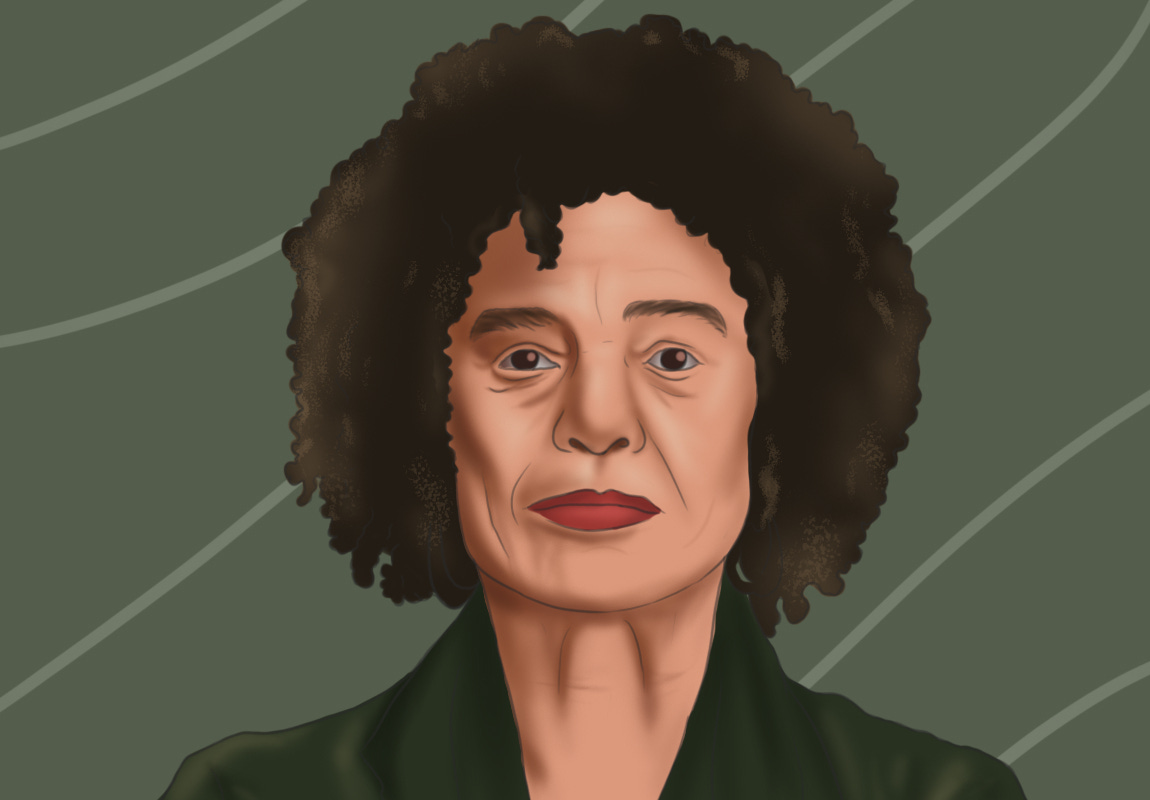Angela Yvonne Davis is an American activist, educator and author who gained an international reputation during her imprisonment and trial based on conspiracy charges between 1970 and 1972.
Angela Davis was born on January 26, 1944, in Birmingham, Alabama, the United States. She was the daughter of two Alabama school teachers. Davis had to face discrimination in several ways even from her childhood. Birmingham in Alabama state was one of the most racially segregated cities in the country. The infamous Ku Klux Clan often attacked the home of black residents with bombs, and her neighbourhood was nicknamed ‘Dynamite Hill’.
After returning to the United States, Davis became involved in the civil rights movement.
While in high school, Angela Davis formed an interracial study group and volunteered for the Student Nonviolent Coordinating Committee. When she was 15, Davis travelled to New York to complete high school. After completing schooling, she received a scholarship to study French Literature at Brandeis University in Massachusetts. She went to Germany for higher studies and earned a doctorate in philosophy from the Humboldt University in East Berlin.
After returning to the United States, Davis became involved in the civil rights movement. She believed that capitalism and racism were dangerous. She became active in the Student Nonviolent Committee and the Black Panther party. Even though she was interested in their commitment towards civil rights and Black power, Davis could not fully agree with their policies. There were divisions between male and female members. She was concerned about this issue, and she believed that male members wanted women to stay in the background and not lead the organisation.
Angela Davis was also interested in the Communist party. She appreciated the fact that the Communist party was more welcoming to women and focused on ending capitalism. Though she collaborated with the Black Panther party, she decided to take a leadership role within the local chapter of the Communist party.
In 1969, Davis accepted the post of professor of philosophy at the University of California in Los Angeles. Ronald Reagan, who was then Governor of California, learnt about her political inclinations and pressured the university to fire her. However, Davis fought back with the help of her colleagues and students. Finally, she won the fight when the Supreme Court of California ordered that Davis could not be banned for party affiliation. After several months, the University of California found a way to fire her. They claimed that her comments in the speeches were too politically incendiary.
At the same time, she got involved in the Soledad Brothers Defense Committee. The Soledad Brothers were three black inmates charged with the murder of a white prison guard. The committee sought to raise funds in support of the three accused men.
When Angela Davis was imprisoned, she became an international symbol of resistance outside the prison walls.
On August 7, 1970, a gunman and the brother of one of the Soledad Brothers entered a courtroom and took several people hostage. They declared that people would be released only after the Soledad Brothers were set free. Even though, police attempted a rescue operation and four people were killed, including the courtroom judge. Further investigation revealed that the weapon used by the gunman was bought by Davis a few days earlier. Under the law, she could be charged for her connection with the gun.
She went into exile. During that time, the FBI included her in the ‘10 most wanted list’. Eventually, she was arrested at a hotel in New York and charged with murder, kidnapping and conspiracy. She was held in jail for 18 months and was denied bail. She was kept in solitary confinement.
During that time, Davis learned a lot about the criminal justice system. She understood the unique challenges faced by women in jail. She had also been an advocate for prison reform. To maintain her health both mentally and physically, she started writing and practised yoga and karate.
When Angela Davis was imprisoned, she became an international symbol of resistance outside the prison walls. Activists organised campaigns with the slogan ‘Free Angela’ to create awareness about her plight. Soon, Davis’ name and image became the symbol of the revolution for social justice.
On June 4, 1972, a jury consisting of only whites ruled that Davis was not guilty. She later said that it was the happiest day of her life.
Time spent in jail added fuel to Davis’ passion for equality. After her return, she participated in an international speaking tour and visited several communist countries. She also started teaching again and wrote several books. She spoke about issues like women’s rights, racial equality and prison reform.
In 1974, Angela Davis published her book titled Angela Davis: An Autobiography. In 1980, she unsuccessfully ran for the US Vice-President on the Communist Party ticket. Her other books include Women, Race, & Class (1981), Women, Culture, and Politics (1989), and Blues Legacies and Black Feminism: Gertrude ‘Ma; Rainey, Bessie Smith, and Billie Holiday (1998), and Are Prisons Obsolete? (2003).
Even today, Angela Davis continues to be a strong advocate of racial and gender equality.
Thank you for listening. Subscribe to The Scando Review on thescandoreview.com.
Happy Teaching!














Angela Davis: Advocate of racial and gender equality